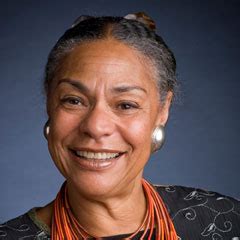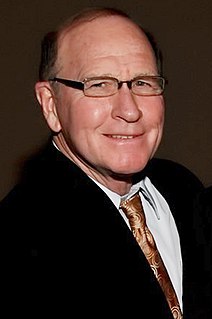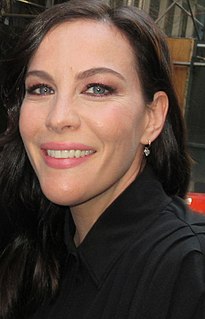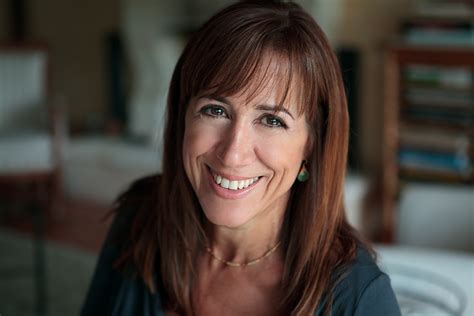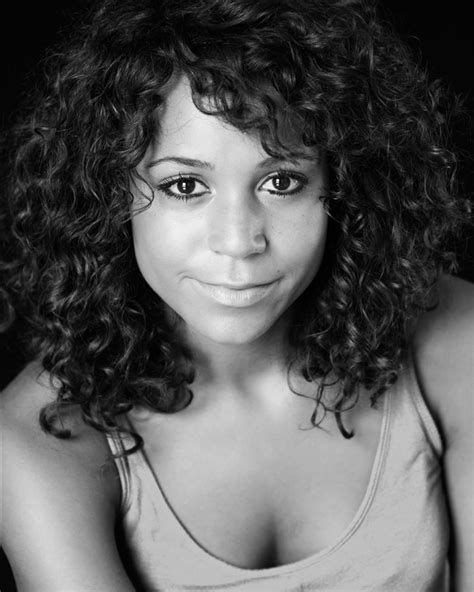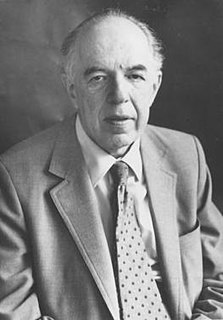A Quote by Frank Pittman
Parents can make us distrust ourselves. To them, we seem always to be works-in-progress.
Related Quotes
It would seem that it was not in the interest of 'someone' for us to make progress. It was in 'someone's' interest that we be always at war, that we tear each other to pieces. Yes, I'm inclined to absolve the Pakistanis. How should they have behaved? Someone encouraged them to attack us, someone gave them weapons to attack us. And they attacked us.
We see ourselves in other people’s eyes. It’s the nature of the human race; we are a species of reflection, hungry for it in every facet of our existence. Maybe that’s why vampires seem so monstrous to us—they cast no reflection. Parents, if they’re good ones, reflect the wonder of our existence and the success we can become. Friends, well chosen, show us pretty pictures of ourselves, and encourage us to grow into them. The Beast shows us the very worst in ourselves and makes us know it’s true .
Property is, after all, a social convention, an agreement about someone's exclusive right to use a thing in specified ways. However, we seem to have forgotten this. We seem to think that property belongs to us in some essential way, that it is of us. We seem to think that our property is part of ourselves, and that by owning it we therefore make ourselves more, larger, greater.
Though we are commanded to 'wash ourselves', to 'cleanse ourselves from sins', to 'purge ourselves from all our iniquities', yet to imagine that we can do these things by our own efforts is to trample on the cross and grace of Jesus Christ. Whatever God works in us by his grace, he commands us to do as our duty. God works all in us and by us.
Over and over victims are blamed for their assaults. And when we imply that victims bring on their own fates - whether to make ourselves feel more efficacious or to make the world seem just - we prevent ourselves from taking the necessary precautions to protect ourselves. Why take precautions? We deny the trauma could easily have happened to us. And we also hurt the people already traumatized. Victims are often already full of self-doubt, and we make recovery harder by laying inspectors blame on them.
We put so much pressure on ourselves as parents to be able to do everything, but children are very grateful and understanding. I always find that quality time, even if you just get a little bit, really has a deep impact. But you also need them to know that they can make mistakes, and if they do make a mistake it's OK for them to tell you and that they'll get a second chance.
People mistake self-love for thinking they must always like what they see in the mirror - and yes, of course, that is the goal; that all depends on perspective - but my argument is that you can still have self-love while wanting to make progress or improve things. The main issue is that we attach too much to an idea of what our perfect body may be or what self-love should be. But that's the issue. There is no right or wrong. We can love ourselves and feel bloated. We can love ourselves but feel uncomfortable in our skin. We are a work in progress and human and won't always feel amazing.
Love of country cannot be a supersized version of individual narcissism. True love of country-of this country-is love of our children, of a creed that promises them a better life before it promises us anything, and embraces the sacrifices needed to make that better life. True love of country is giving ourselves to a cause and a purpose larger than ourselves. And that cause is to make liberty worth having, to make the pursuit of happiness deeper than the quest for personal pleasure, and to leave a legacy of progress and possibility.
I always try to remember that I am a work in progress. It is life's journey that matters and the turns I take will determine how much progress I make. You see, I am unique in my gifts and the purpose I was created for. When I get to heaven at the end of my journey, I will not be asked what gifts He gave me, but what I did with them. Each one of us is a work in progress, with a mission and purpose to fulfill that is uniquely ours. Keep that in mind as you journey, won't you?






